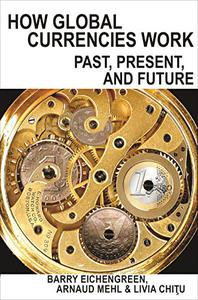
Barry Eichengreen, Arnaud Mehl, Livia Chitu, "How Global Currencies Work: Past, Present, and Future"
English | 2017 | pages: 270 | ISBN: 0691177007, 0691191867 | PDF | 3,0 mb
A powerful new understanding of global currency trends, including the rise of the Chinese yuan
At first glance, the modern history of the global economic system seems to support the long-held view that the leading world power's currency―the British pound, the U.S. dollar, and perhaps someday the Chinese yuan―invariably dominates international trade and finance. In How Global Currencies Work, three noted economists provide a reassessment of this history and the theories behind the conventional wisdom.
Offering a new history of global finance over the past two centuries, and marshaling extensive new data to test established theories of how global currencies work, Barry Eichengreen, Arnaud Mehl, and Livia Chiţu argue for a new view, in which several national monies can share international currency status, and their importance can change rapidly. They demonstrate how changes in technology and in the structure of international trade and finance have reshaped the landscape of international currencies so that several international financial standards can coexist. They show that multiple international and reserve currencies have in fact coexisted in the past―upending the traditional view of the British pound's dominance prior to 1945 and the U.S. dollar's dominance more recently.
Looking forward, the book tackles the implications of this new framework for major questions facing the future of the international monetary system, from whether the euro and the Chinese yuan might address their respective challenges and perhaps rival the dollar, to how increased currency competition might affect global financial stability.
Fikper
v4vim.H.G.C.W.P.P.a.F.R.rar.html
Rapidgator
v4vim.H.G.C.W.P.P.a.F.R.rar.html
NitroFlare
v4vim.H.G.C.W.P.P.a.F.R.rar
Uploadgig
v4vim.H.G.C.W.P.P.a.F.R.rar
Please Help Me Click Connect Icon Below Here and Share News to Social Network | Thanks you !
